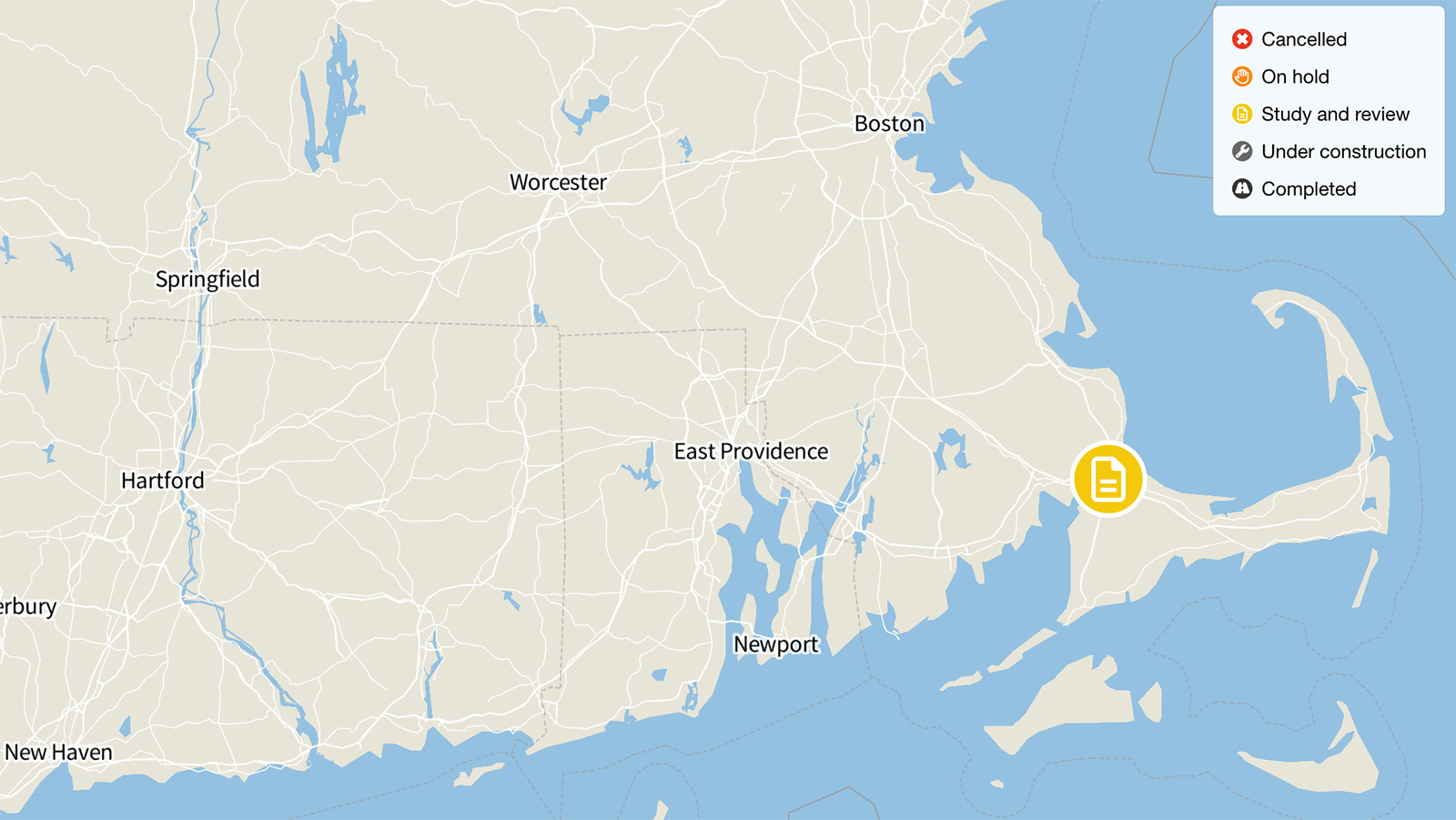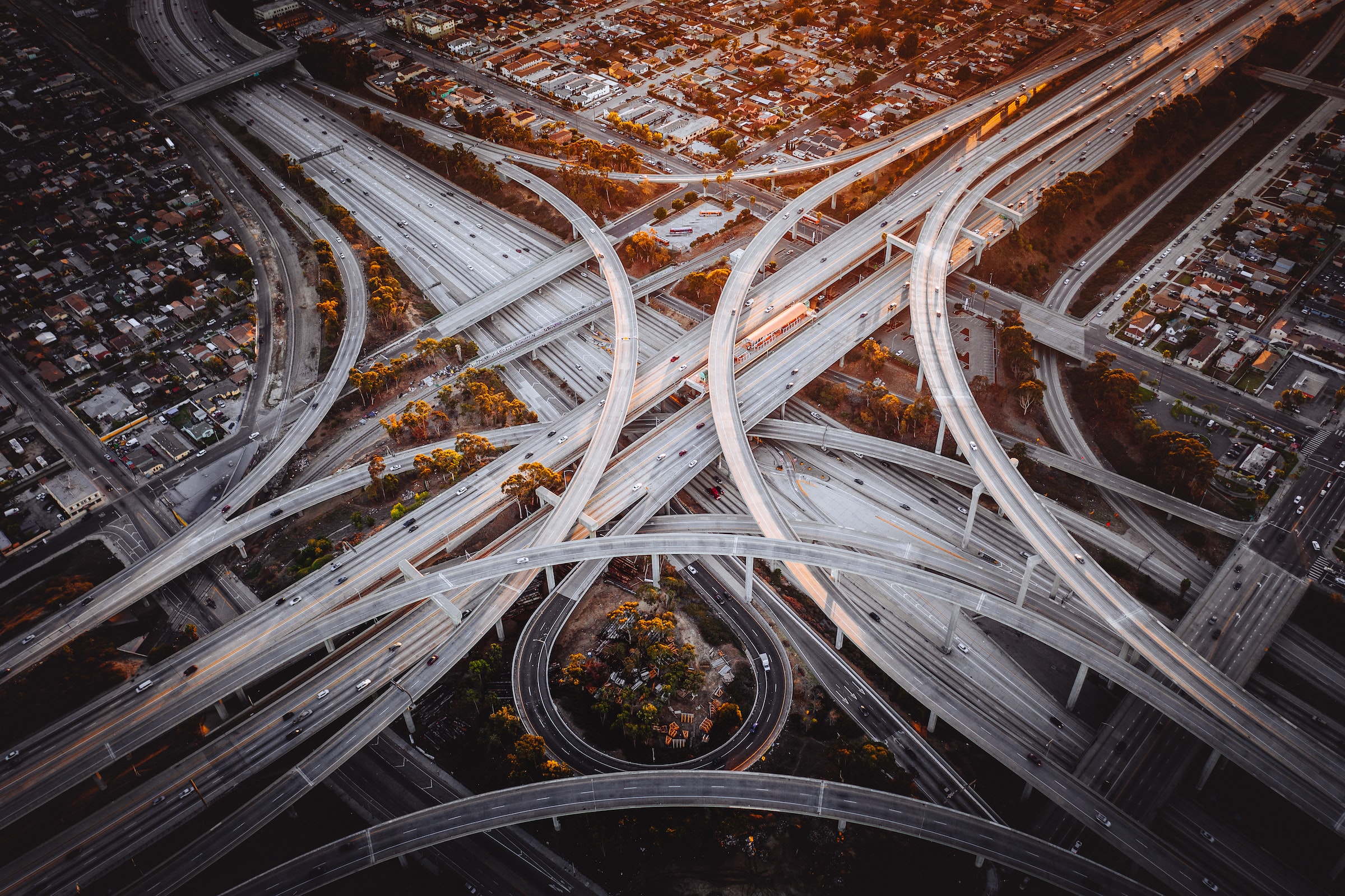
Effingham Parkway, Georgia
Transportation officials in a rural area northwest of Savannah, Georgia, are worried that an existing state highway will be unable to cope with growing traffic volumes if hoped-for industrial expansion and resulting population increase occurs. Their proposal is a new $37.4 million highway. Recent trends, however, suggest that traffic isn’t growing as quickly as had been anticipated, raising questions about whether the new highway is necessary.
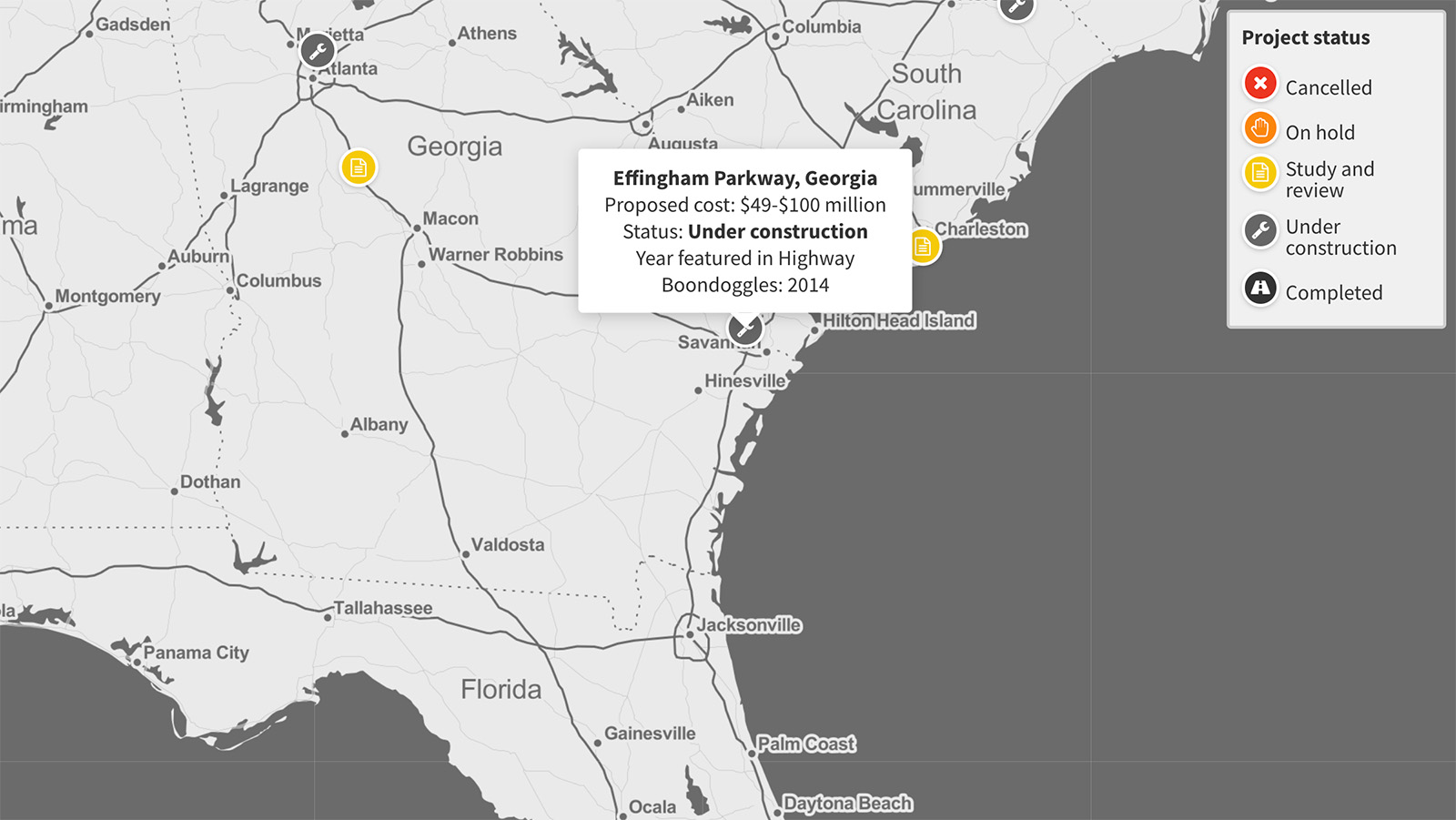
Status: Under Construction
Originally reported cost: $49 million to $100 million
Update for current status:
As of September 2023, the Effingham Parkway project is currently under construction.
Update from Highway Boondoggles 4, 2018:
Proposed as a parallel road to the existing Route 1, the 6.36-mile parkway is intended to connect U.S. Route 30 to Bluejay Road. In 2016, the state officially pledged $44 million for the parkway project following a gas tax increase passed by the legislature. The project had previously been stalled by local opposition to the displacement of homes and because the Chatham County Commission Chairman hadn’t wanted to make the parkway a priority.
Final plans for the project are in the process of being reviewed by the Georgia DOT, and right of way negotiations have begun. Construction is expected to begin in 2019.
Original story from Highway Boondoggles, 2014:
Transportation officials in a rural area northwest of Savannah, Georgia, are worried that an existing state highway will be unable to cope with growing traffic volumes if hoped-for industrial expansion and resulting population increase occurs. Their proposal is a new $37.4 million highway. Recent trends, however, suggest that traffic isn’t growing as quickly as had been anticipated, raising questions about whether the new highway is necessary.
The proposed Effingham Parkway is a $37.4 million road that would run parallel to the existing Georgia Route 21.165 Connecting the new highway to other existing local roads will require spending an additional $11.5 million on nearby road work. State plans include expansion to four lanes in the future, and specify a total price tag of $100 million.
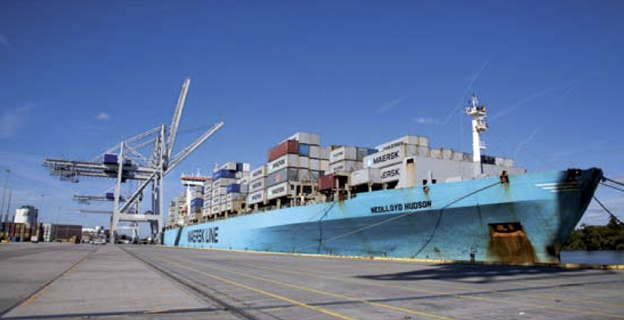
Georgia officials hope the Port of Savannah and nearby roads will see more freight traffic after the Panama Canal is widened. Credit: Georgia Ports Authority
Traffic on Route 21, however, has failed to grow at the rate anticipated by officials along most of the relevant length. Of five locations on Route 21 parallel to the proposed parkway where both projections and traffic counts were available, only one saw traffic increase at an average rate higher than is expected to happen if the Effingham Parkway is not built. The other locations saw traffic rise far less than projected, stay flat, or even drop.
The project’s official justification is partly based on hopes that the nearby port of Savannah will benefit from increased container ship traffic that could come as a result of the present widening of the Panama Canal, but it is no sure thing that Savannah will receive funding to adapt the harbor to wider ships, or –even if it does—that the harbor would outcompete the other East Coast ports that are also angling for these giant ships. And even if both those things occur, the Effingham Parkway would not be a major recipient of any traffic resulting from the shipping, as it is not a designated freight corridor. The two nearby interstate highways—I-95 going north-south and I-16 going west—are already the key carriers of freight in the region, in addition to rail routes.
The Effingham Parkway project has been downscaled to two lanes from an originally planned combination of twoand four-lane segments, but the current proposal leaves room for future widening. State funding has not yet been secured, but the current timeline is for work to start in late 2017. The interim county administrator in June 2014 said officials are hoping “to avoid having to do a Federal Highway Administration environmental impact statement, which would lead to a lengthy timeline and an even bigger price tag.”
Georgia is already struggling to pay for its transportation infrastructure—the state had enough money to resurface just 2 percent of its highways in 2013, leading state Transportation Commissioner Keith Golden to tell a legislative committee that meant roads would only get resurfaced every 50 years.
Georgia has a long history of encouraging road expansion with little consideration of its specific merits. For instance, there is a longstanding “balancing” system that encourages dividing highway funds equally among Congressional districts, regardless of relative needs. Likewise, the Governor’s Road Improvement Program places highway access at the pinnacle of transportation access needs, and is premised on the idea that living within 20 miles of a four-lane highway should be a nearly universal entitlement for Georgians.

Topics
Find Out More

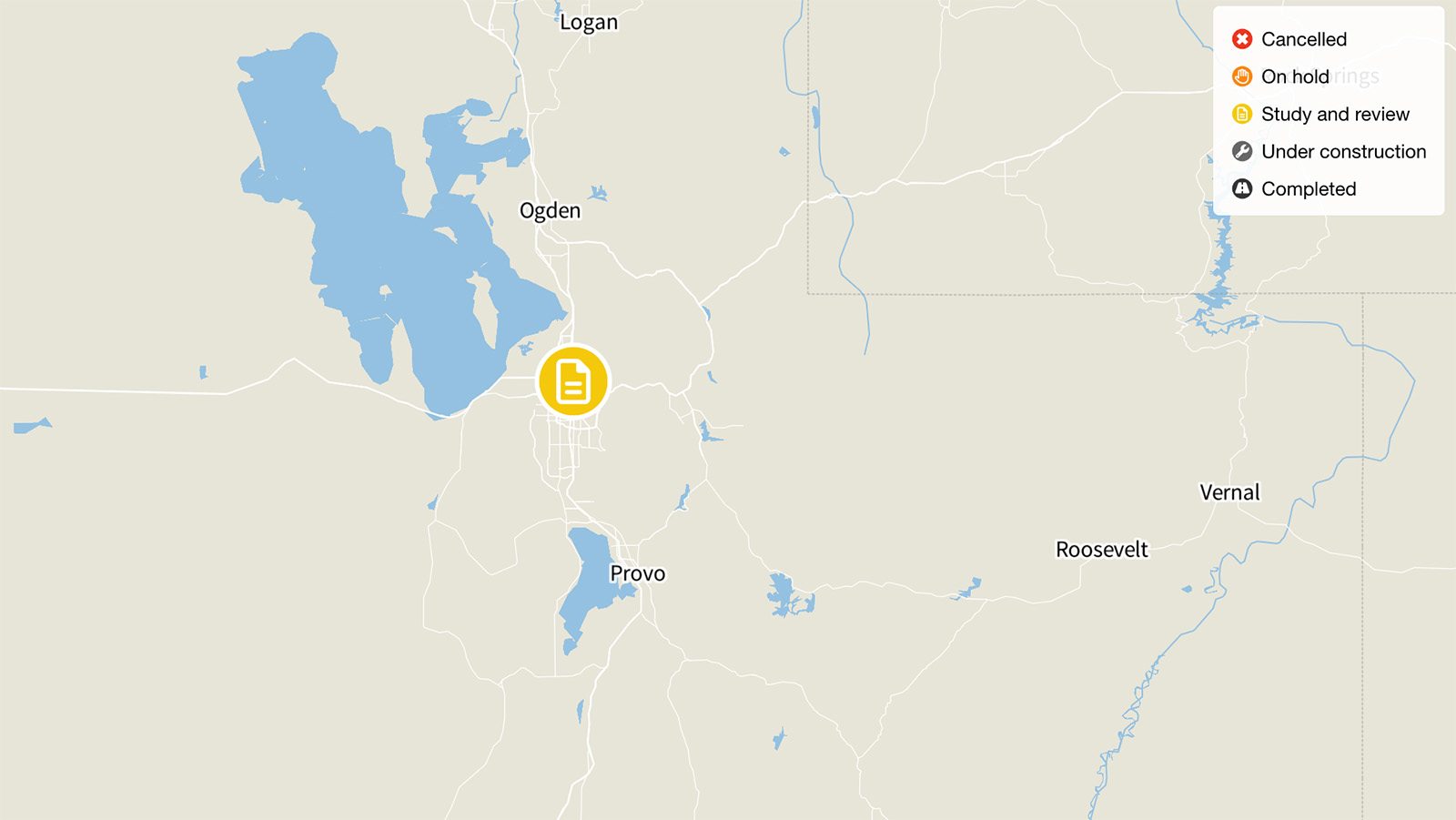
I-15 Expansion, Salt Lake City
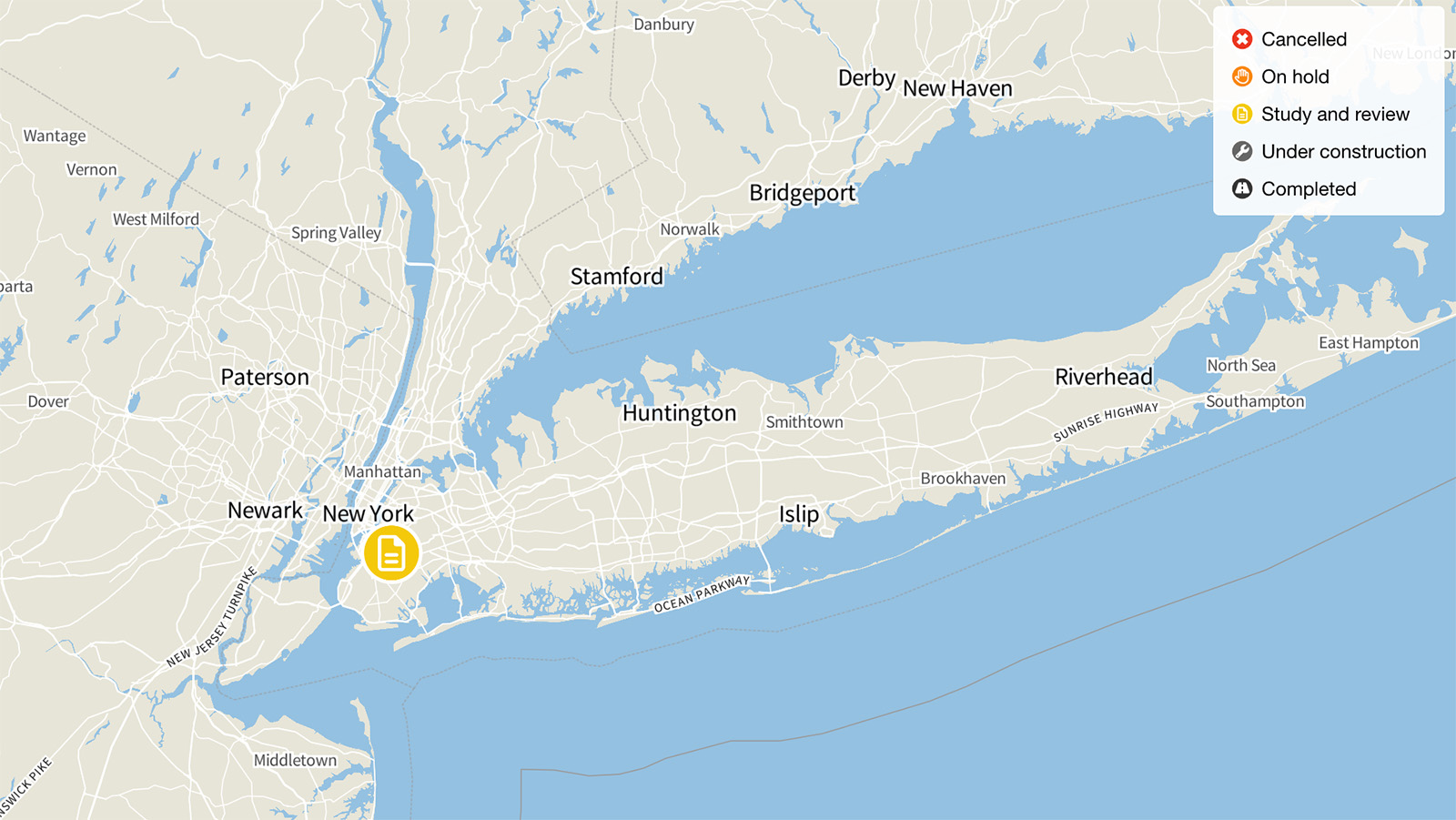
The Brooklyn-Queens Expressway, New York
